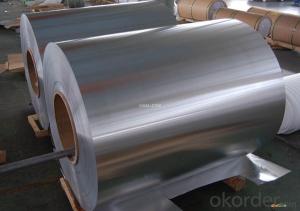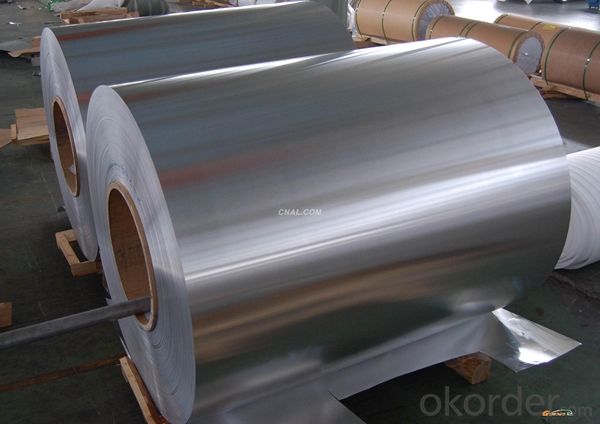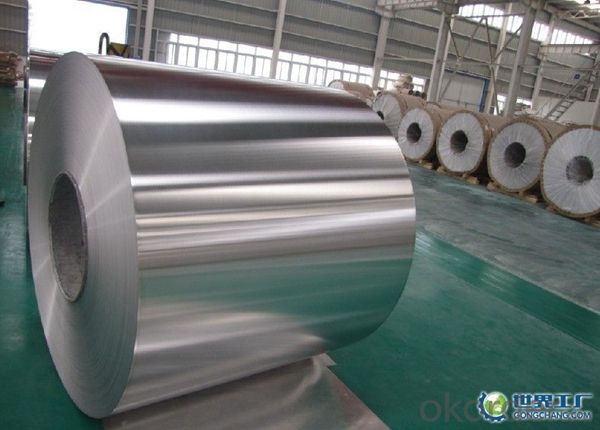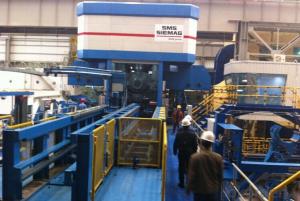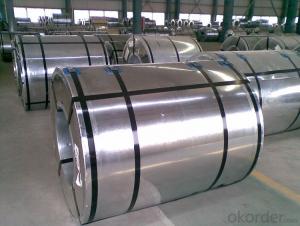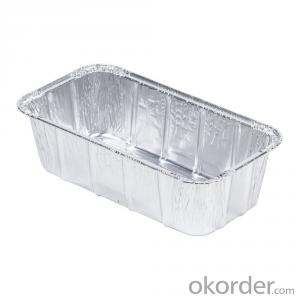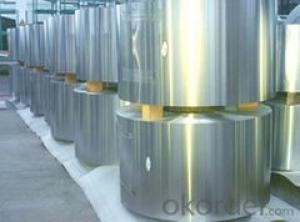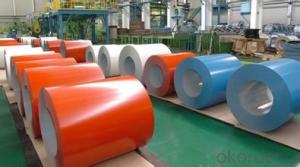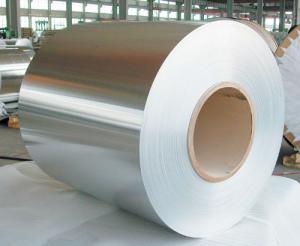APV 25 Aluminum Coil - Aluminum Rolls Sizes in All Kinds Available
- Loading Port:
- Shanghai
- Payment Terms:
- TT OR LC
- Min Order Qty:
- 5 m.t.
- Supply Capability:
- 10000 m.t./month
OKorder Service Pledge
OKorder Financial Service
You Might Also Like
Specification
1. Specification of Aluminum Rolls Sizes in All Kinds Available
characteristics | Application |
1) Super peeling strength | 1) Building exterior curtain walls |
2) Excellent surface flatness and smoothness | 2) Decoration and renovation additions for old buildings |
3) Superior weather, corrosion, pollutant resistance | 3) Decoration of interior walls, ceilings, bathrooms, kitchens and balconies |
4) Even coating, various colors | 4) Shop door decorations |
5) Fireproof, excellent heat and sound insulation | 5) Advertisement board display platforms and signboards |
6) Superior impact resistance | 6) Wallboards and ceilings for tunnels |
7) Lightweight and easy to process | 7) Industrial materials, materials for vehicles and boats |
2. Application of Aluminum Rolls Sizes in All Kinds Available
(1).Interior: wall cladding, ceilings, bathrooms, kitchens and balconies, shutters, doors...
(2).Exterior: wall cladding, facades, roofing, canopies, tunnels,column covers , renovations...
(3).Advertisement: display platforms, signboards, fascia, shop fronts...
3. Feature of Aluminum Rolls Sizes in All Kinds Available
*Such coil is specially designed to replace aluminum ingot, due to the high export tax of aluminum ingot, the coil has better price than ingot.
*This type of coil can fit customer's remelting furnace just like ingot, no need to make any change to the production line that was previously used for ingot. The standard coil size and weight is very suitable for the feed gate of furnace.
*This type of coil causes less material wastage than ingot when remelted.
*Our coil is made directly from ore, no need to go though the ingot making process, quality is much better than other suppliers who use ingot scrap to make coil.
Be free from Oil Stain, Dent, Inclusion, Scratches, Stain, Oxide Dicoloration, Breaks, Corrosion, Roll Marks, Dirt Streaks and other defect which will interfere with use
4. Certificate:
SGS and ROHS(if client request, paid by client), MTC(plant provided), Certificate of Origin(FORM A, FORM E, CO), Bureau Veritas and SGS (if client request, paid by client), CIQS certificate
5. Image of Aluminum Rolls Sizes in All Kinds Available
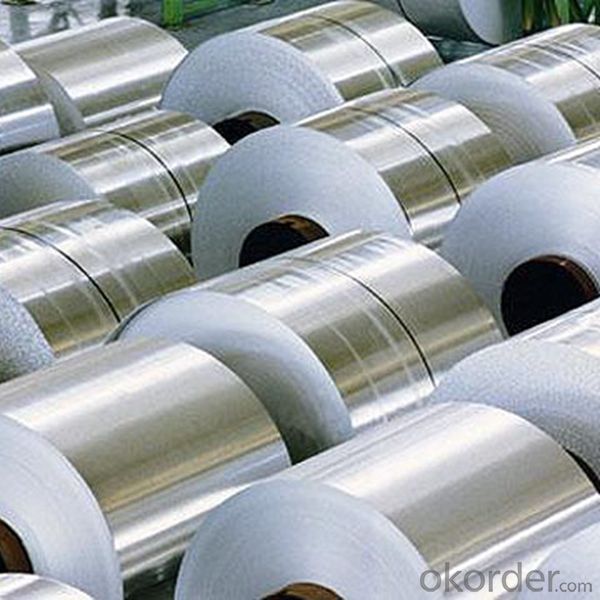
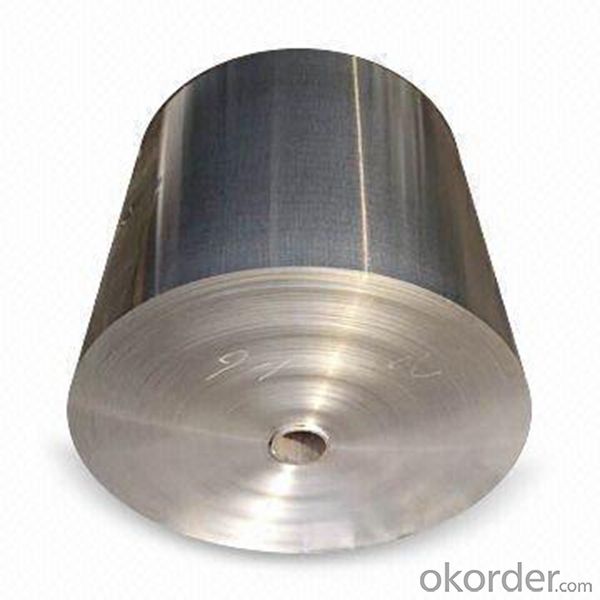
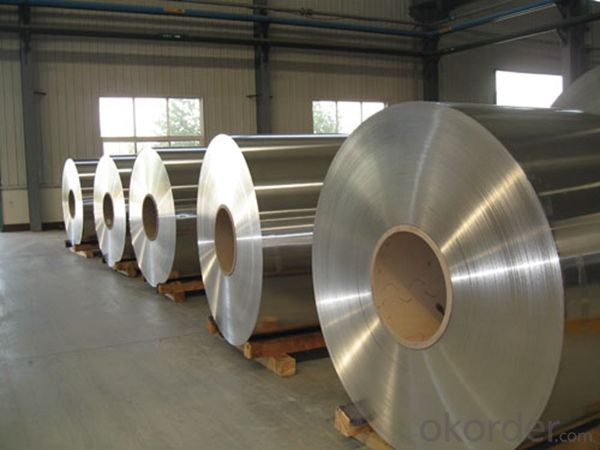
6. Package and shipping of Aluminum Rolls Sizes in All Kinds Available
eye to wall
eye to the wall
with wood pallet (wooded case also available)
7. FAQ
1) What is the delivery time?
Dpends on actual order, around 20 to 35 days
2)What is the QC system:
We have QC staff of 20 persons and advanced equipment, each production is with MTC traced from Aluminum ingot lot.
3) What market do you mainly sell to?
Australia, America, Asia, Middle East, Western Europe, Africa etc
- Q: What are the common installation methods for aluminum coils?
- The common installation methods for aluminum coils include direct attachment, concealed fastening, and interlocking panel systems.
- Q: Are there any specific maintenance requirements for aluminum coils?
- Yes, aluminum coils require regular maintenance to ensure optimal performance and longevity. Some specific maintenance requirements for aluminum coils include cleaning them regularly with a mild detergent and water solution, removing any debris or dirt that may accumulate on the coils, inspecting for any signs of corrosion or damage, and ensuring proper airflow around the coils by keeping the surrounding area clear. Additionally, it is important to schedule professional maintenance and tune-ups to check for refrigerant leaks or any other issues that may affect the performance of the aluminum coils.
- Q: I can't figure out what the metabolic role of aluminum is. Been searching for a while and can't seem to find anything concrete.If you can, please include sources. Thanks!
- I don't think it has any role.
- Q: I heard that clay pots and aluminum cans are great caves for my fish to breed in but will the can rust???
- Aluminum will not rust. Only iron rusts. Because steel has iron in it, steel can rust.
- Q: How do aluminum coils withstand extreme weather conditions?
- Aluminum coils are designed to withstand extreme weather conditions due to their inherent properties and construction. The aluminum used in these coils is highly resistant to corrosion, allowing them to endure exposure to moisture, rain, snow, and even saltwater without deteriorating. Additionally, aluminum coils have excellent heat transfer capabilities, enabling them to dissipate excessive heat and prevent damage from high temperatures. Moreover, they are sturdy and durable, enabling them to withstand strong winds, heavy storms, and even hail. Overall, the combination of corrosion resistance, heat transfer efficiency, and robust construction make aluminum coils well-equipped to endure harsh weather conditions.
- Q: Are aluminum coils suitable for low-maintenance roofing applications?
- Yes, aluminum coils are suitable for low-maintenance roofing applications. Aluminum is known for its durability, longevity, and resistance to corrosion, making it an ideal material for roofing. Aluminum coils are lightweight yet strong, providing excellent structural integrity to withstand various weather conditions. Additionally, aluminum is a low-maintenance material as it does not rust or require regular painting. This means that homeowners or building managers can save time and money on maintenance tasks such as repainting or replacing rusted parts. Overall, aluminum coils are an excellent choice for low-maintenance roofing applications.
- Q: How are aluminum coils used in the aerospace industry?
- Aluminum coils are extensively used in the aerospace industry for various applications. One of the primary uses of aluminum coils is in the construction of aircraft structures. Aluminum is a lightweight material with excellent strength-to-weight ratio, making it an ideal choice for the aerospace industry where weight reduction is crucial. These coils are often formed into sheets or plates and used to build aircraft fuselage, wings, and other structural components. In addition to structural applications, aluminum coils are also used in the manufacturing of heat exchangers and cooling systems in aircraft. Aluminum's high thermal conductivity and corrosion resistance make it an excellent material for dissipating heat generated by engines and electronic systems. The coils can be shaped into tubes or fins, allowing efficient heat transfer and ensuring optimal performance of the aircraft's cooling systems. Another important use of aluminum coils in the aerospace industry is for electrical applications. Aluminum is a good conductor of electricity, and its coils are used in the production of electrical wiring, connectors, and cables. These components are crucial for the proper functioning of various systems in an aircraft, including power distribution, communication, and navigation systems. Furthermore, aluminum coils are also employed in the construction of fuel tanks and hydraulic systems in aircraft. Aluminum's resistance to corrosion and its ability to withstand high pressure and temperature make it a reliable choice for these critical components. The coils can be shaped and welded to form tanks or piping systems that store and transport fuel and hydraulic fluids safely and efficiently. Overall, aluminum coils play a vital role in the aerospace industry by providing lightweight, strong, and corrosion-resistant materials for structural, thermal, electrical, and fluid management applications. Their versatility, durability, and excellent performance characteristics make them indispensable in the design and construction of modern aircraft, ensuring safety, efficiency, and reliability in air transportation.
- Q: Are there any specific installation requirements for aluminum coils?
- Aluminum coils have specific installation requirements that must be taken into account. When installing these coils, several factors need to be considered. First and foremost, it is crucial to provide adequate support and secure the coils properly during installation. Due to their weight, it is essential to prevent sagging or damage by using appropriate brackets or support structures. This ensures that the coils are firmly mounted. Secondly, the location and environment of the installation should be carefully assessed. Aluminum coils are commonly used in HVAC systems, so it is important to ensure that the installation area is free from any corrosive substances or chemicals that could harm the coils. Additionally, proper ventilation is necessary to prevent the accumulation of heat or moisture, as these factors can affect the coils' performance and lifespan. Moreover, it is imperative to adhere to the manufacturer's guidelines and recommendations for installation. These guidelines may include specific instructions regarding the type of fasteners or connectors to be used, the appropriate spacing between coils, and any other particular requirements for the specific aluminum coil being installed. By following these guidelines, the coils' optimal performance and longevity can be ensured. Lastly, it is highly advisable to enlist the services of a professional with experience in handling and installing aluminum coils. This will minimize the risk of any issues or damage resulting from incorrect installation. In conclusion, specific installation requirements for aluminum coils encompass proper support, consideration of the installation environment, adherence to manufacturer guidelines, and professional installation. By following these requirements, the optimal performance and longevity of aluminum coils can be achieved.
- Q: Can aluminum coils be used in outdoor applications?
- Yes, aluminum coils can be used in outdoor applications. Aluminum is highly resistant to corrosion, making it a suitable material for outdoor use. It is commonly used in the construction industry for outdoor structures such as roofs, gutters, and siding. Additionally, aluminum coils are lightweight and easy to work with, making them a popular choice for outdoor applications. However, it is important to note that the specific grade and thickness of the aluminum coil should be considered to ensure it can withstand the environmental conditions of the specific outdoor application.
- Q: Will the surface of aluminum contact water if the aluminum coil falls into water?
- That depends on how tight the aluminum coil is. If it is very tight, aluminum will stick together, thus no water can get in.
Send your message to us
APV 25 Aluminum Coil - Aluminum Rolls Sizes in All Kinds Available
- Loading Port:
- Shanghai
- Payment Terms:
- TT OR LC
- Min Order Qty:
- 5 m.t.
- Supply Capability:
- 10000 m.t./month
OKorder Service Pledge
OKorder Financial Service
Similar products
Hot products
Hot Searches
Related keywords
